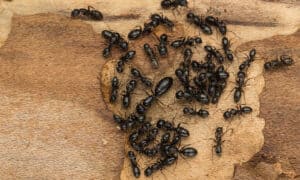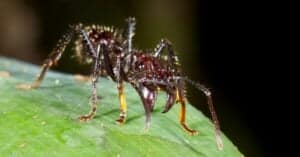Do you suspect that you have a fire ant infestation? This is not a single species of ant but a term that describes several ants that can cause serious problems. Their stings can trigger nasty inflammation (that is very painful) and their mounds are unsightly. Some species also cause damage to buildings and electrical equipment. However, when controlling them you need to balance costs and environmental impact with the benefits. A professional pest control firm can give you appropriate advice. Perhaps you are considering a simpler control solution using everyday household products such as baking soda. But does baking soda kill fire ants and how should you use it? Here we answer the most commonly asked questions.
What Are the Signs of a Fire Ant Infestation?
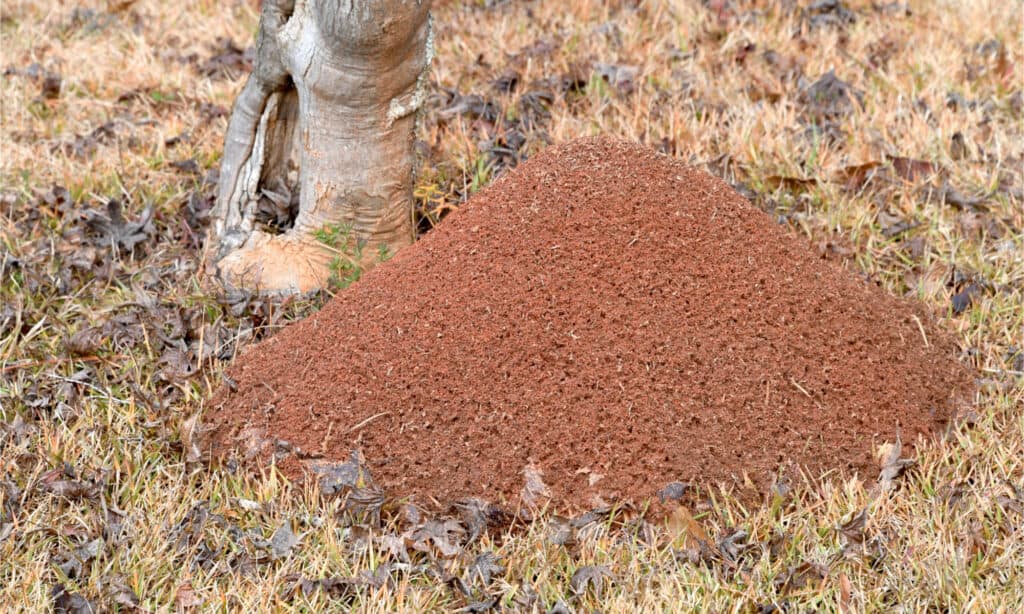
Fire ant mounds are more obvious after rainfall.
©Robert Gregory Griffeth/Shutterstock.com
You may find a nesting mound in your yard or even see the ants themselves around your garden or yard. The sandy earthen mounds are usually more visible after rainfall. Undisturbed mounds can reach 18 inches in height and are made of fluffy, worked soil. If you disturb one, dozens of ants will flee the mound.
Getting stung by one is something that you are unlikely to forget. It feels much like a burn and will form a white fluid-filled pustule or blister.
What Exactly Is Baking Soda?

©Sendo Serra/Shutterstock.com
Baking soda is a dry powder chemical commonly used in cooking as a leavening agent which means that it makes things ‘rise’. It is an alkaline and the chemical used most commonly in baking soda is sodium bicarbonate.
How to Safely Use Baking Soda to Kill Fire Ants
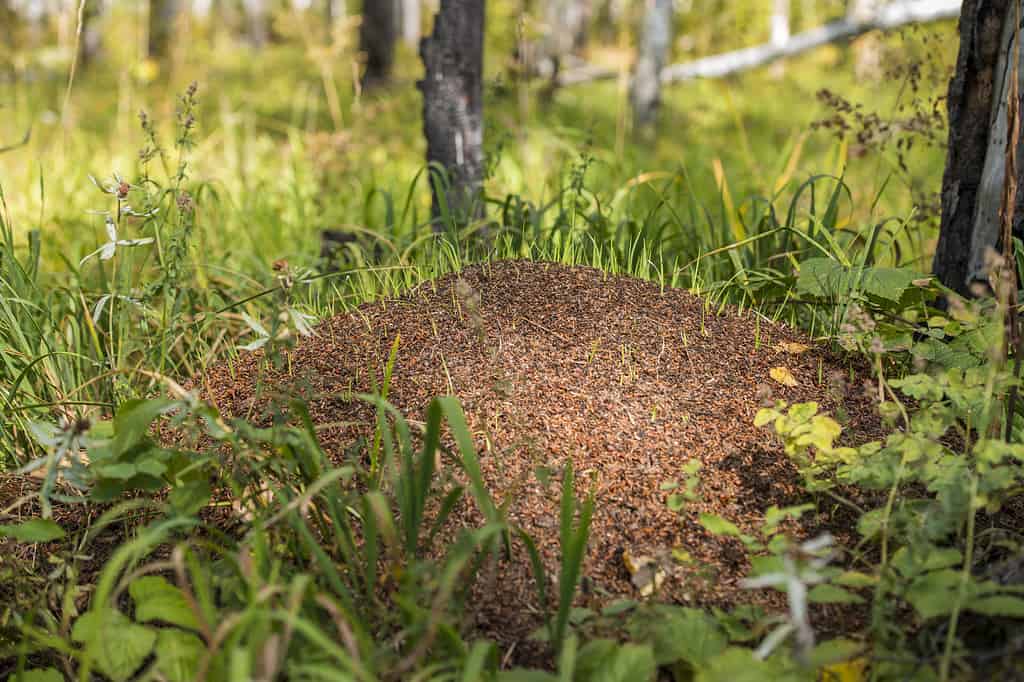
A great home for ants.
©iStock.com/markhonosvitaly
If you are going to use baking soda, you need to be careful that it is not ingested by children or pets. Whilst it is non-toxic in cooking, there can be serious complications if overdoses are consumed. In humans, this can cause stomach upsets and you should seek medical advice. If it is consumed by dogs, cats, or other pets in significant quantities it can lead to stomach irritation and more serious health consequences. If your pet consumes it, seek advice from your vet.
How Long Does Baking Soda Take to Kill Fire Ants?
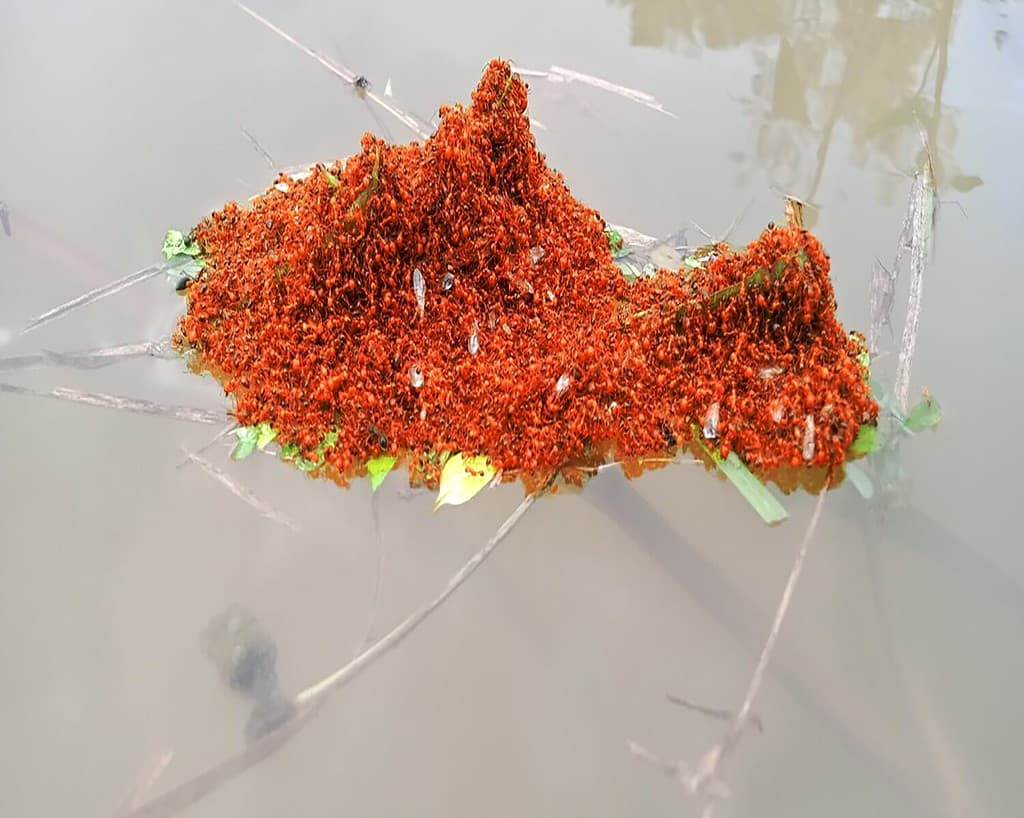
©Jjom/Shutterstock.com
If you are lucky enough to get the fire ants to ingest baking soda, it may kill them. It may take just a few minutes to do this as it drastically alters the pH balance in their bodies. However, there is mixed evidence on just how effective it is. With a large colony, it may have little impact and you may need to explore alternatives.
It May Repel Them from Your House
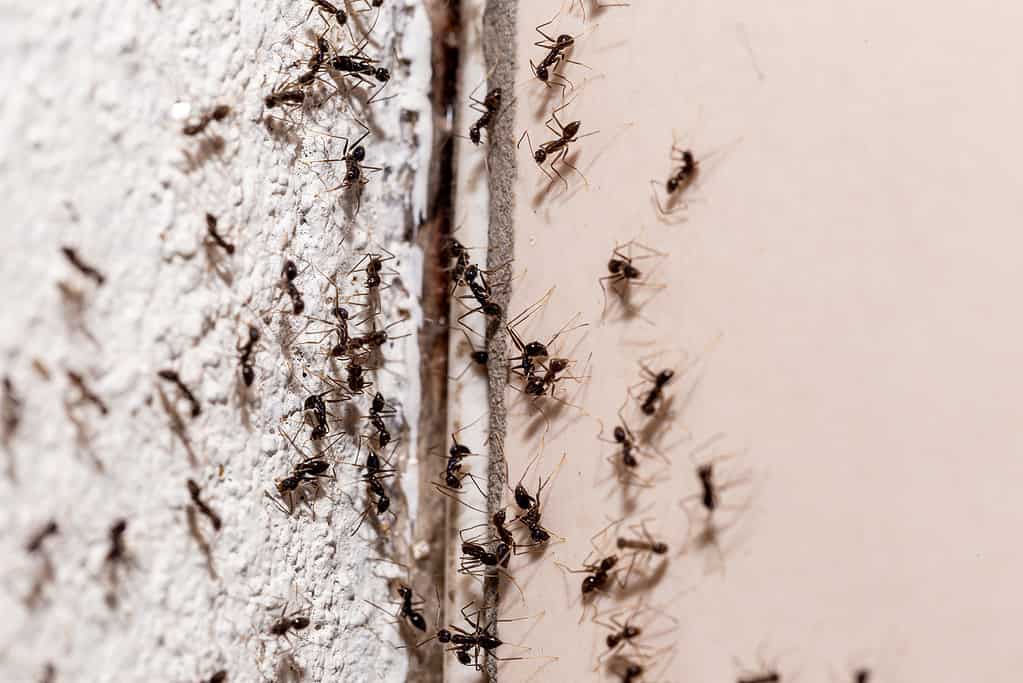
Many types of bugs enter houses through cracks.
©RHJ/iStock via Getty Images
Fire ants hate baking soda! So, if you sprinkle it around where you see ants it may repel them. Take great care if you have pets or children so that they do not consume it. Most people sprinkle it around doorways and window sills as this is where most ants gain entry to homes. You may also want to sprinkle it in cabinets and under sinks. If you clear away crumbs and food debris it will stop ants from being attracted to your home in the first place.
It May Kill Fire Ants If They Ingest It
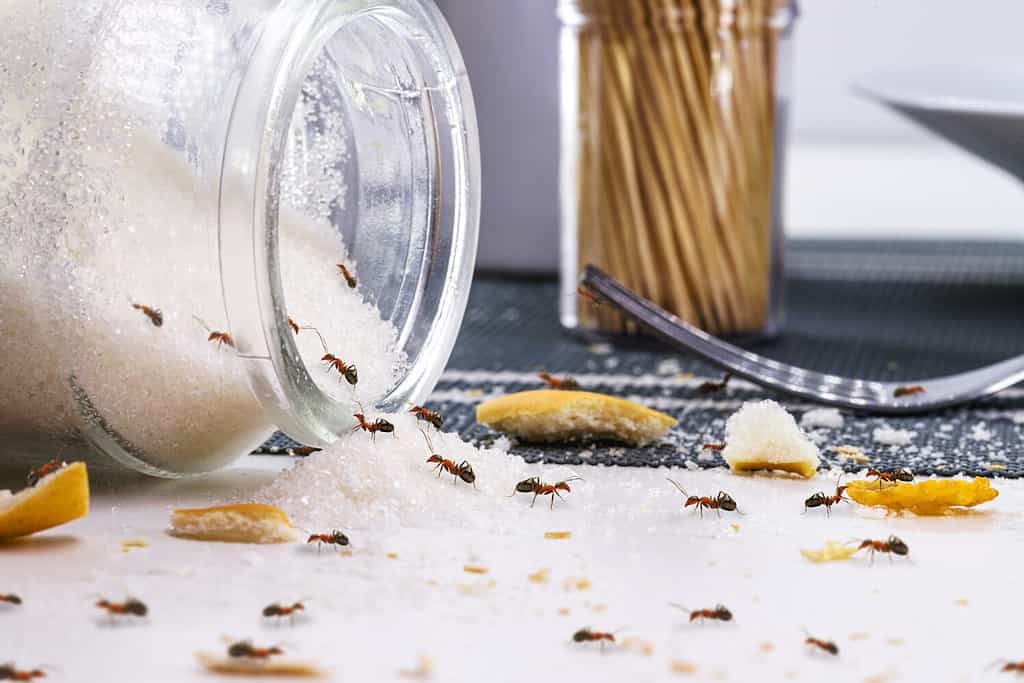
Fire ants love sugar and sweet things.
©RHJPhtotos/Shutterstock.com
Your challenge is getting the ants to eat the baking soda! You can try mixing it with the same quantity of confectioners sugar. You need to use confectioners sugar because it is fine and that stops the ants from separating it from the baking soda. It may also help if you add jam, peanut butter, or honey.
Sprinkle Baking Soda on Fire Ants’ Nests

Fire ants are attracted to sweet things.
©FabrikaSimf/Shutterstock.com
One option is to sprinkle the mixture of sugar and baking soda on ant mounds. You could also add some water to it to create a paste. Some people have found that placing baking soda in a soda can and leaving it near a nest is a better option. The ants are attracted to the traces of soda left in the can and the baking soda is inaccessible for pets.
There Are Alternatives
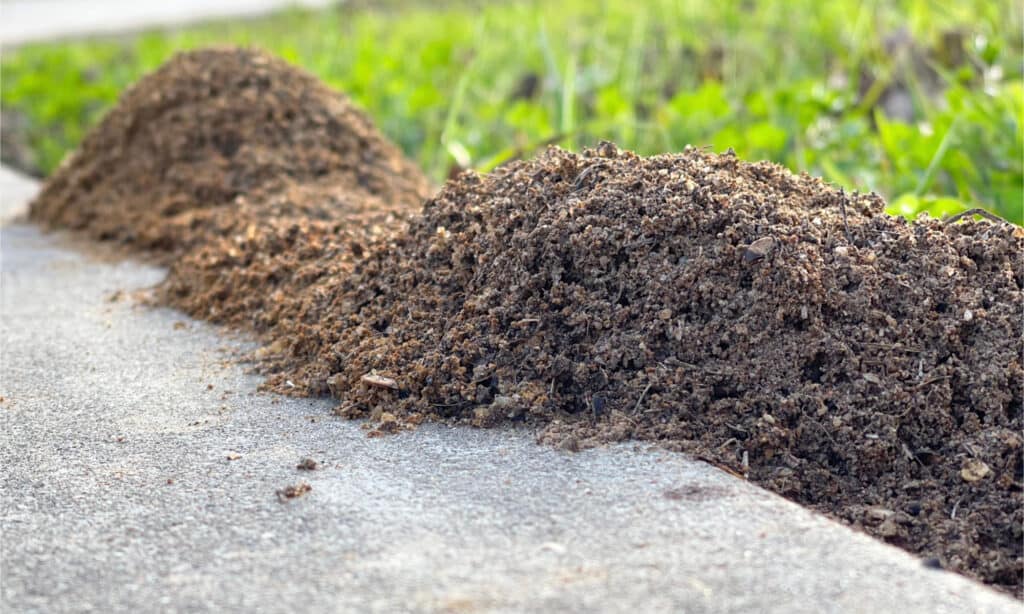
You can try pouring boiling water on mounds.
©james mccord carter/Shutterstock.com
A professional pest control company will be able to advise you on alternative eradication options. This may be the best option to keep them away for longer. Some people also try pouring boiling water down the opening of a mound. For individual ants, you can spray a mixture of dish soap and water to coat and suffocate them. Peppermint and tea tree oil are natural insect repellants but can be toxic for pets and humans (if consumed) so you need to take care where you use them.
The photo featured at the top of this post is © sarawuth wannasathit/Shutterstock.com
Thank you for reading! Have some feedback for us? Contact the AZ Animals editorial team.





